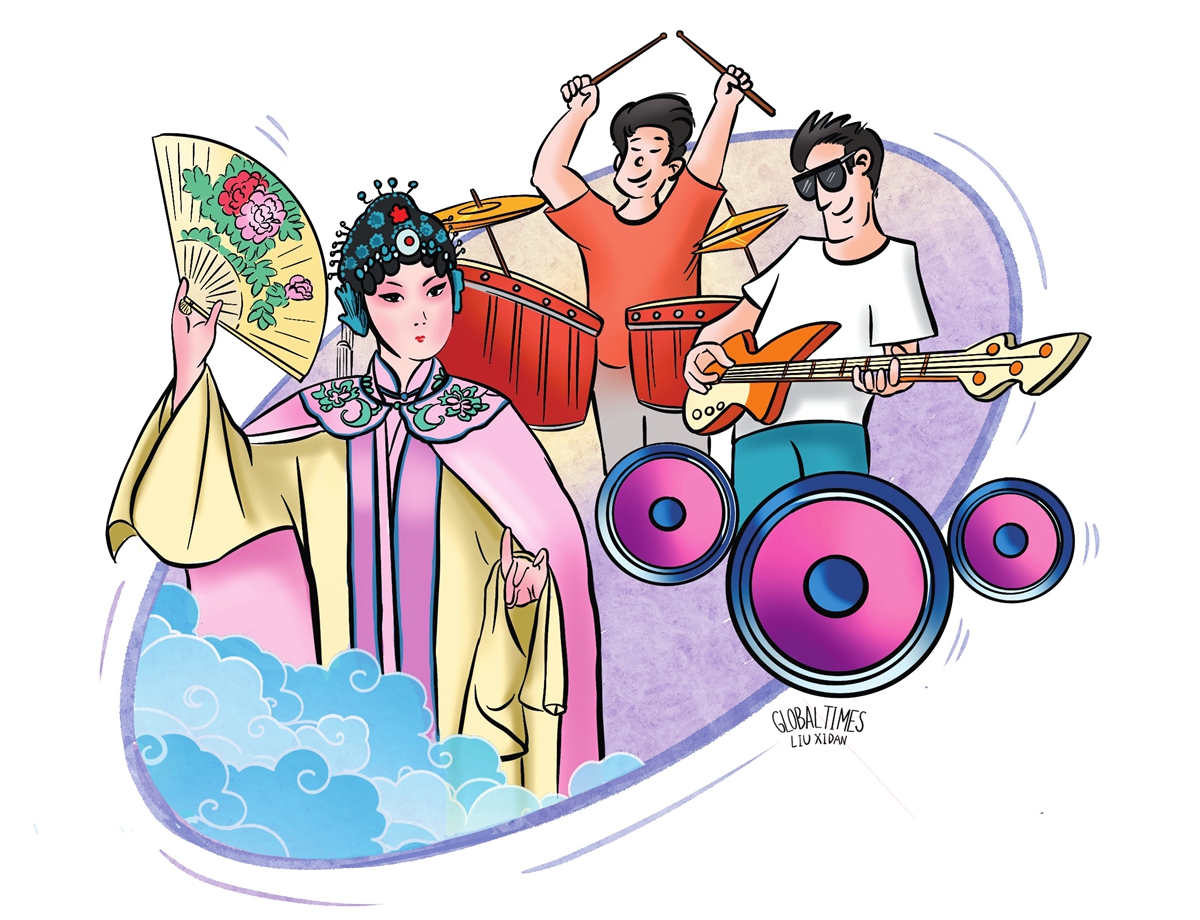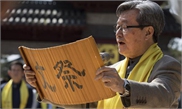ARTS / MUSIC
Innovation, young people key to inheritance of Chinese operas

Illustration: Liu Xidan/Global Times
In the recent popular film Full River Red (director Zhang Yimou), a score combining Yuju Opera and electronic and rock'n'roll music created an exciting atmosphere, sparking interest in young Chinese moviegoers toward this traditional opera style.
Actually, this is not the first time that a movie has promoted traditional Chinese operas. Back in 1905, the first Chinese movie Dingjun Mountain presented Peking Opera. Later in 1954, the well-known Yueju Opera The Butterfly Lovers was performed in the first Chinese color film. Since then, many more films featuring local operas have been made such as The Dream of Red Mansion, Farewell to My Concubine and Mei Lanfang, getting audiences from home and abroad to fall in love with traditional Chinese operas.
In recent years, novel means to popularize traditional operas have also been adopted, such as through TV dramas, New Year galas and outdoor stages thanks to digital technology. In the popular 2020 TV drama Winter Begonia, audiences were able to acquire an in-depth understanding of the opera verses through interactive voting, an effective way to popularize Chinese opera knowledge. In 2021, the 4K panoramic sound Cantonese Opera film The Legend of the White Snake attracted many young audiences to experience this art form. In 2023, traditional operas moved from theaters onto open-air 360-degree panoramic immersive stage in Wenzhou, East China's Zhejiang Province for the Spring Festival Chinese Opera Gala, giving off a strong atmosphere of vitality.
Besides this, traditional opera elements have also been adopted in popular art forms in order to give young people better access to them. Some tunes from traditional operas have become hits at home and abroad after making their way to audio and video platforms.
For instance, on YouTube, a band Blaxy Girls from Romania sang the song "If you feel my love" with popular tunes from the Peking Opera The Case of Chen Shimei, accumulating 2.11 million views. The tunes from the Peking Opera version of the classic Chinese novel Journey to the West became the theme song of an online game, while the hero Guan Yu from another classic novel adaptation, Outlaws of the Marsh, appeared in a fighting game.
In the worldwide popular game Genshin Impact, the aria of the woman warrior Yun Jin became a hit with nearly 10 million views, making a real impact for the promotion of traditional Chinese opera around the world. In addition, other advanced mediums like big data and AI have also been used to mix local opera styles with electronic music or help professional actors narrate operas on short video platforms.
In this age of information and cultural diversity, "high efficiency and rapid pace" drive people, especially the young, to have a "fast food" type of lifestyle. So the "slow tempo and long notes" of traditional opera does not fit their entertainment tastes. And even if some young people take an interest in traditional operas, they "have no access to them." Therefore, it is imperative to get more youth involved in traditional operas so that they can become interested in them and help pass them on.
The above-mentioned innovative methods have shown young people that traditional operas are not "old-fashioned," "out of date," or "absurd," but are actually treasures of Chinese culture that can be appreciated today through modern technology.
Traditional Chinese operas are treasures of fine Chinese culture. They have undergone many twists and turns, but the best of them have survived. So young people should also learn to respect, appreciate and build confidence in this traditional art form as they have for some Western art forms. Of course, traditional Chinese opera inheritors should step up and adapt works to fit modern people's tastes by borrowing elements from other art forms. Only in this way can traditional Chinese operas survive, evolve and reach a broader audience, perhaps even beyond China's borders. This hope lies with young people.

